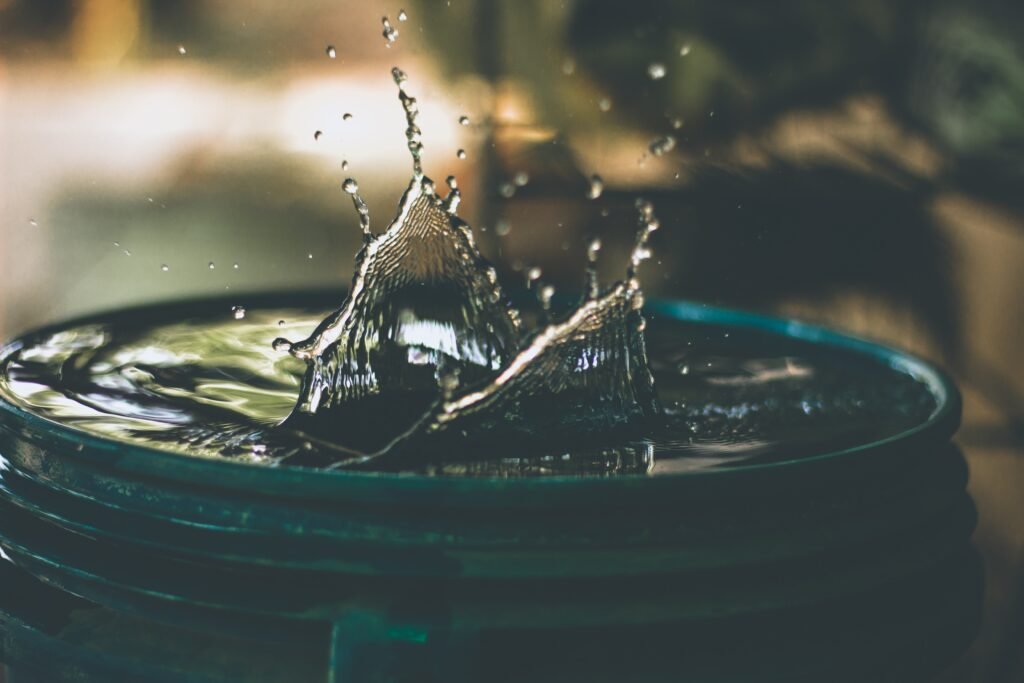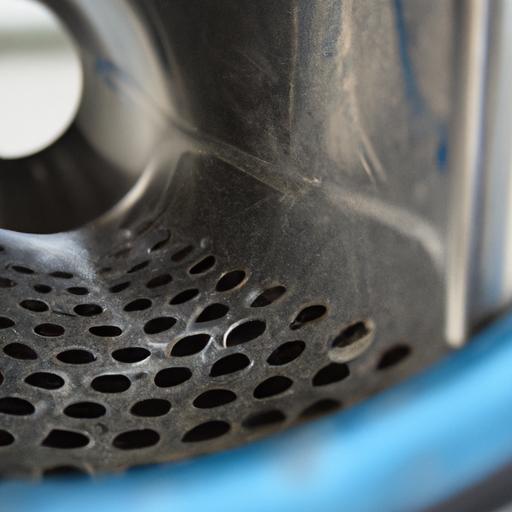Filtration Systems
August 17, 2023 | by rainwatercollectionsystem.com

Looking to harness the power of nature to meet your water needs? Look no further than Filtration Systems. With a strong commitment to environmental conservation and resource efficiency, Filtration Systems specializes in designing, installing, and maintaining innovative rainwater collection systems for residential, commercial, and industrial applications. By seamlessly integrating into your property, these systems capture and store rainwater for various uses, reducing reliance on traditional water sources and contributing to water conservation. With a team of skilled professionals and a dedication to quality craftsmanship and advanced technology, Filtration Systems delivers tailored solutions that cater to your specific water needs and property requirements. Experience a greener and more sustainable water future while enjoying the advantages of efficient water utilization with Filtration Systems.
Introduction
Water is an essential resource for our daily lives, and it is crucial to ensure that the water we consume is clean and safe. Filtration systems play a vital role in achieving this goal by removing impurities and contaminants from our water sources. In this article, we will explore the importance of filtration systems, the different types available, how to choose the right system for your needs, installation, maintenance, and the various benefits they offer. Additionally, we will address common issues and troubleshooting tips, and provide maintenance tips for the longevity of your filtration system.
Importance of Filtration Systems
Ensuring Clean and Safe Water
The primary purpose of filtration systems is to ensure that the water we consume is clean and safe. Water from various sources, such as wells, municipal supplies, or rainwater collection systems, may contain impurities and contaminants that can pose health risks. Filtration systems play a crucial role in removing these harmful substances, ensuring that the water you drink and use for other purposes is free from pollutants.
Improving Water Quality
Filtration systems also significantly improve the quality of water. Even if the water source is relatively clean, it may still contain unpleasant substances such as chlorine, sediment, or metallic tastes and odors. These impurities can affect the taste, smell, and overall quality of your water. By using the right filtration system, you can remove these unwanted elements, resulting in cleaner, better-tasting water.
Removing Impurities and Contaminants
Filtration systems are designed to remove a wide range of impurities and contaminants from your water. From visible sediment and particles to invisible bacteria, viruses, and chemicals, filtration systems effectively eliminate these harmful substances, ensuring that your water is safe for consumption. With the right system in place, you can have peace of mind knowing that you are protected against waterborne diseases and other health risks.

Types of Filtration Systems
Activated Carbon Filters
Activated carbon filters are one of the most common types of filtration systems used in households. These filters use activated carbon, which has a high surface area, to absorb impurities and contaminants. They are effective in removing chlorine, volatile organic compounds (VOCs), bad tastes, and odors from water, improving its overall quality. Activated carbon filters are usually installed under the sink or connected to a faucet, providing clean and filtered water for drinking and cooking.
Reverse Osmosis Systems
Reverse osmosis (RO) systems are another popular choice for water filtration. These systems use a semi-permeable membrane to remove a wide range of impurities and contaminants, including bacteria, viruses, heavy metals, dissolved solids, and more. RO systems are known for their efficiency in producing high-quality drinking water. However, it’s important to note that RO systems can also remove beneficial minerals from water, so it’s important to find a balance between filtration and mineral retention.
UV Water Filters
UV water filters use ultraviolet light to kill bacteria, viruses, and other microorganisms present in water. These filters are particularly effective in disinfecting water and eliminating harmful pathogens. UV water filters are often used in combination with other filtration systems to provide a comprehensive water treatment solution. They are commonly used in well water systems and are highly beneficial for areas with a higher risk of microbial contamination.
Sediment Filters
Sediment filters are designed to remove visible particles, such as sand, dirt, rust, and debris, from water. These filters are typically installed at the point of entry, such as where water enters your home, to protect your plumbing system and appliances from damage caused by sediment buildup. Sediment filters are often the first line of defense in a multi-stage filtration system, ensuring that water is free from larger particles before going through more advanced filtration processes.
Iron and Manganese Filters
Iron and manganese filters are specialized filters designed to remove excessive iron and manganese from water. These minerals can cause staining, unpleasant taste, and odor issues. Iron and manganese filters use various techniques, such as oxidation and filtration media, to effectively remove these elements from your water supply. By using an iron and manganese filter, you can improve the taste and appearance of your water and prevent staining on fixtures and clothing.
Choosing the Right Filtration System
Identifying Water Quality Issues
The first step in choosing the right filtration system for your needs is to identify any specific water quality issues you may be facing. This can include bad taste and odor, visible sediment, high levels of iron or manganese, or concerns about microbiological contamination. Understanding the specific problems you want to address will help determine the type of filtration system that will be most effective.
Understanding Filtration Needs
Once you have identified the water quality issues, consider your filtration needs. Are you looking for a whole-house filtration system that will treat all water entering your home, or do you need a smaller system for a specific tap or appliance? Understanding the volume of water you need to filter and the specific areas of your home that require filtration will help narrow down your options and determine the capacity of the system you require.
Considering System Efficiency
System efficiency is an important factor to consider when choosing a filtration system. Look for systems that are certified by independent organizations, such as NSF International, to ensure that they meet industry standards for effectiveness and efficiency. Additionally, consider the waste-to-water ratio for certain systems, such as reverse osmosis, as this can impact water consumption and efficiency.
Evaluating Maintenance Requirements
Different filtration systems have varying maintenance requirements. Some systems require regular filter changes, while others may require occasional cleaning or disinfection procedures. Evaluate your willingness and ability to perform the necessary maintenance tasks and choose a system that aligns with your lifestyle and capabilities. It’s important to choose a system that you can maintain effectively to ensure proper operation and longevity.
Determining Cost and Budget
Consider your budget when choosing a filtration system. Some systems may have a higher upfront cost but require less maintenance and lower filter replacement costs over time. On the other hand, some systems may be more affordable initially but have higher ongoing maintenance expenses. Depending on your budget and long-term cost considerations, choose a filtration system that provides the best value for your specific needs.

Installation and Maintenance of Filtration Systems
Proper Installation Guidelines
Proper installation is essential to ensure the optimal functioning of your filtration system. Follow the manufacturer’s guidelines and, if needed, consult a professional plumber or technician to ensure that the system is installed correctly. Improper installation can lead to leaks, inefficient filtration, or even system failure.
Regular Maintenance Practices
Regular maintenance is crucial to keep your filtration system in good working condition. This includes routine checks, cleaning, and monitoring of the system to ensure that it is functioning properly. Regular maintenance practices may vary depending on the type of filtration system you have, so refer to the manufacturer’s instructions for specific guidelines.
Replacement of Filter Cartridges
Most filtration systems require regular replacement of filter cartridges. These cartridges become saturated with impurities over time, reducing their effectiveness. Follow the manufacturer’s recommendations for filter replacement intervals, and ensure that you use genuine replacement cartridges to maintain optimal performance.
Cleaning and Disinfection Procedures
Certain filtration systems, particularly those that involve UV disinfection, may require periodic cleaning and disinfection procedures. This is necessary to ensure that the system is free from bacteria or other contaminants that may accumulate over time. Follow the manufacturer’s guidelines for cleaning and disinfection, and perform these procedures as recommended to maintain the integrity and effectiveness of the system.
Benefits of Filtration Systems
Safe and Healthy Drinking Water
One of the most significant benefits of filtration systems is the assurance of safe and healthy drinking water. By removing impurities, contaminants, and harmful microorganisms, filtration systems provide clean and safe water for consumption. This is especially important for individuals with compromised immune systems, children, or the elderly, who may be more susceptible to waterborne illnesses.
Improved Taste and Odor
Filtration systems also contribute to improved taste and odor of your water. By removing chlorine, sediment, and other substances that contribute to unpleasant tastes and smells, filtration systems enhance the overall quality of the water you drink and use in cooking. This can make a noticeable difference in the flavor and enjoyment of your beverages and meals.
Extended Lifespan of Household Appliances
Using a filtration system can extend the lifespan of your household appliances that come into contact with water. Appliances such as coffee makers, ice machines, and dishwashers can accumulate mineral deposits and other impurities, leading to reduced efficiency and premature wear. By filtering out these substances, filtration systems help maintain the performance and longevity of your appliances.
Reduced Risk of Waterborne Diseases
Waterborne diseases are a significant concern, especially in areas with inadequate water treatment or contaminated water sources. Filtration systems provide an additional layer of protection against bacteria, viruses, and parasites that can cause illnesses such as diarrhea, cholera, or giardiasis. By reducing the risk of waterborne diseases, filtration systems contribute to the overall health and well-being of individuals and communities.
Environmental Sustainability
By using a filtration system, you can significantly reduce your reliance on single-use plastic water bottles. Bottled water is not only expensive but also contributes to plastic waste and environmental pollution. Utilizing a filtration system allows you to enjoy clean, filtered water straight from your tap, minimizing plastic waste and promoting environmental sustainability.

Common Issues and Troubleshooting
Low Water Pressure
Low water pressure can be a common issue with filtration systems. This can be caused by various factors, such as clogged filters, improper installation, or problems with the plumbing system. If you experience low water pressure after installing a filtration system, check for any obstructions in the filters and ensure that all connections are secure. If the issue persists, consult a professional to identify and resolve the underlying cause.
Filter Clogging
Over time, filters can become clogged with accumulated impurities, reducing their effectiveness and water flow. Regularly inspect and replace filter cartridges as recommended by the manufacturer to prevent clogging. Additionally, consider using sediment filters as a pre-filter to remove larger particles, reducing the load on the main filtration system and minimizing the risk of clogging.
Leakages and Seal Problems
Leakages or seal problems can occur with filtration systems, especially if they are not installed correctly or if the seals become worn or damaged. Inspect the system for any visible leaks and ensure that all connections and seals are secure. If you notice any leaks, address them promptly to prevent water damage and ensure the proper functioning of the system.
Inadequate Filtration
If you notice that your water is not being adequately filtered or if the taste and odor issues persist, it may indicate that the filtration system is not functioning properly. Check the filters and ensure that they are clean and free from any obstructions. If the problem persists, consult a professional to assess the system and determine if any repairs or adjustments are necessary.
Maintenance Tips for Longevity
Regular Filter Replacement
Regularly replace the filter cartridges according to the manufacturer’s recommendations. This ensures that the system continues to function optimally and effectively removes impurities from the water. Set reminders or mark your calendar to help you stay on track with the filter replacement schedule.
Proper Cleaning Schedule
Follow a regular cleaning schedule for your filtration system to prevent the buildup of sediment, minerals, or other substances that can hinder its performance. Refer to the manufacturer’s instructions for cleaning guidelines and frequency. Proper cleaning ensures that the system operates efficiently and prolongs its lifespan.
Monitoring Water Quality
Regularly monitor the quality of your water to ensure that the filtration system is effectively removing impurities and contaminants. Use water testing kits or send samples to a certified laboratory for analysis. Monitoring water quality allows you to detect any issues or changes in the water composition and address them promptly.
Professional Inspection
Engage the services of a professional plumber or technician for periodic inspections of your filtration system. A professional can assess the system, identify any potential problems, and perform maintenance tasks that may be beyond your expertise. Regular professional inspections help ensure that your filtration system remains in good working condition for years to come.

Conclusion
Filtration systems play a crucial role in ensuring clean and safe water for consumption. With a wide range of filtration options available, it’s important to choose the right system based on your specific needs and water quality concerns. Proper installation, regular maintenance, and adherence to recommended cleaning schedules and filter replacements are essential for the longevity and optimal performance of your filtration system. By investing in a filtration system, you can enjoy the benefits of safe and healthy drinking water, improved taste, extended lifespan of household appliances, reduced risk of waterborne diseases, and contribute to environmental sustainability.
RELATED POSTS
View all





